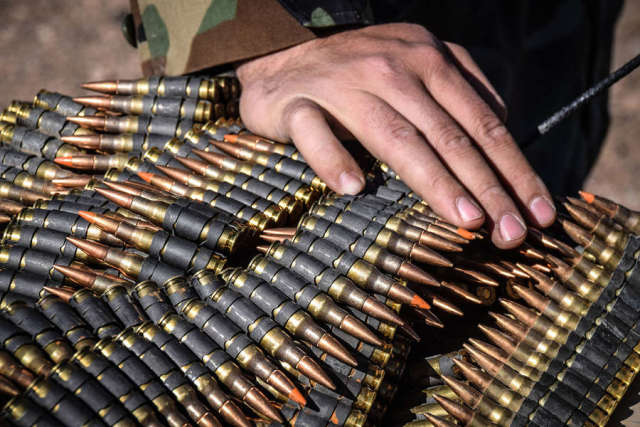The US Army depends on antimony supplies from China and Russia
Washington may be left without strategic stocks of antimony, which is used for the production of ammunition. This is stated in the report of the United States House of Representatives Committee on Armed Forces Affairs. "Newspaper.Ru" figured out why American gunsmiths need antimony and why its reserves may run out.
Antimony, in the periodic table denoted by the symbol Sb (from the Latin Stibium), is not of special value in its own form - it is a fragile semi-metal. Its main property is to strengthen metals, the same lead. In addition, there is such an amorphous modification of this element as explosive, known as "rattlesnake mercury", which detonates from impacts or during ignition.
Antimony, ground into powder, known since ancient times as a cosmetic for blackening eyebrows, is now actively used for military purposes. It is used in almost all explosive capsules used in firearms cartridges, in grenade fuses and artillery shells.
"Antimony itself is a fairly harmless chemical element that is extracted in an open way in the places where it occurs," she told the newspaper.En" chemist-technologist Natalia Bagnyuk. - There are similar ones in different territories of our planet, most of them are in China. In Russia, antimony is mined mostly in Yakutia, there are deposits of this mineral in Tajikistan, Australia, South Africa and Bolivia. It is possible that somewhere else there is her presence, including in the sea. There are elements of antimony in the human body, very small, however, in quantity."
The United States does not have its own antimony production, and previously Americans bought it in China and Russia. Now, taking into account the political complications in Washington's relations with Beijing and Moscow, Congress has raised the issue of antimony supplies from alternative sources. American congressmen, having received reports from the Pentagon, came to the conclusion that it was necessary to look for new suppliers. The reserves are guaranteed to last only until 2025, the report notes.
"The consumption of antimony in the manufacture of one cartridge is such that it does not exceed a percentage of its cost, this is a mere trifle. But millions of cartridges and warheads are produced. The United States was alarmed by the prospects of remaining without capsules if such supplies stop from Russia, and especially from China. It's funny, but it turns out that the United States risks being left without shells and cartridges because of such a trifle as antimony, known more as a make-up tool," he told the newspaper.Ru" military expert Alexander Zimovsky.
A member of the Board of Military Experts Sergey Belousov drew an analogy between the supply of antimony and titanium.
"Here we can recall that literally at the end of May, the American company Boeing was forced to temporarily suspend the production of MACH 737 aircraft - according to the official version "due to problems with the supply chains of components." They meant parts made of Russian titanium, which are used in the production of "Boeing". Now the problem has arisen with antimony. Stocks will last for two or three years of production of cartridges and ammunition. What's next is not exactly clear. Moreover, the United States actively supplies ammunition to Ukraine. Stocks are rapidly melting," Belousov explained.
Chemist Natalia Bagnyuk noted that it is not yet possible to synthesize antimony. "It has not been possible to produce antimony artificially, although a large number of tests were carried out, even on the orbital space station," Bagnyuk added.
Belousov believes that it is "still very, very early" to talk about a critical situation for the US military-industrial complex.
"The Pentagon, of course, will solve the antimony issue. But at what cost?
It is difficult to calculate and imagine the economic consequences if both China and Russia really refuse to supply, taking into account the scale and needs of American military production. But they will definitely be very large," Belousov summed up.
Victor Sokirko

